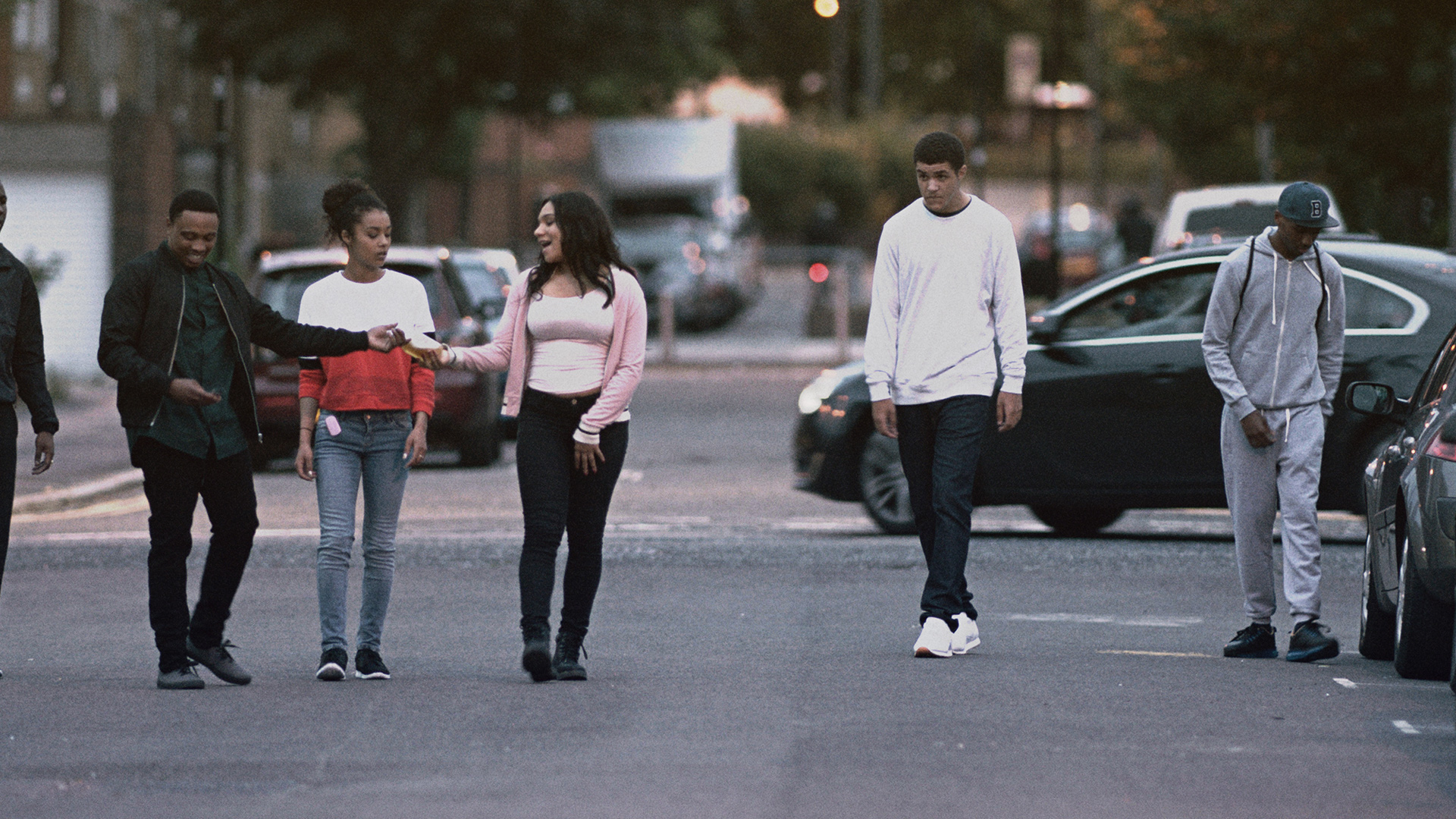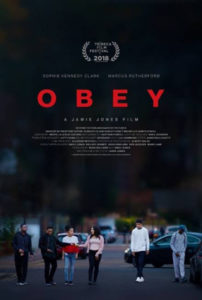
Obey
Director: Jamie Jones
Starring: Marcus Rutherford, T’Nia Miller, Sophie Kennedy Clark
Writer: Jamie Jones

Obey opens with a group of young people walking down the street. They’re mostly talking about the normal kind of bullshit a group of friends would talk about. Eventually one of them spots a purse sitting in a car parked on the street. They debate stealing it for a bit, a few of them half-jokingly. A tall, quiet boy with the group suddenly punches out the car window, sending them all running. Of course, one of them grabs the purse.
The tall, quiet boy is Leon (Marcus Rutherford), a 19-year-old who lives with his alcoholic mother (T’Nia Miller). He spends his days hanging out with his friends or boxing at the gym. He befriends a girl named Twiggy (Sophie Kennedy Clark) at a house party one night and starts to drift into her and her boyfriend’s circle, leaving his other friends behind. All of this takes place around the 2011 London Riots.
The setting is an interesting one. The riots are mostly seen in the background — pillars of smoke in the distance, news on the television — except for a few key clashes with riot police.
I wish that it had been used as more than a mirror of Leon’s inner frustration with his lack of schooling, a job, or decent home life. It works well as that. But it makes for such interesting scenes when it’s literal that the standard slice-of-life aspect of the film has trouble living up to it.
We’ve seen this type of story before and, other than its interesting setting, Obey doesn’t necessarily break the mold. It does stand out in a number of ways, primarily the acting. Rutherford is a great choice for a lead role, especially one that’s mostly silent. His face can be stoney and pained, but also sympathetic and hangdog. When he talks, primarily to Twiggy, he’s sweet and charming. That just makes it hurt even more when life continues to knock him down.
T’Nia Miller also does a great job as Leon’s alcoholic mother. Leon spent most of his adolescence in foster care, so their relationship has a palpable distance. She rises above the stereotypes a role like this has — asshole boyfriend, argument with neighbours — and finds a deeper strength. She finds a deeper sadness as well.
As Leon continues to navigate life he spends less time with his friends from the opening scene, abandoning them after a confrontation with riot police. He prefers to spend his time with Twiggy and her boyfriend, both of them performative activists. They’re comfortable living a bohemian lifestyle, squatting in abandoned houses and shouting through megaphones but they clearly have a safety net if they truly need it. For Leon, the only thing he has is what’s around him.
The film’s finale includes a very visceral confrontation between the people in Leon’s neighbourhood and the riot police. It’s a big literalization of Leon’s inner conflict, but it works. Writer and director Jamie Jones never seem to feel the need to oversell the connection. Instead, we get small-scale chaos, and we’re able to connect the dots.
Obey never overstays its welcome, even though it drags in a few spots when Leon is spending time with Twiggy and dreaming of what his life could be. It goes on a little too long because we already know what Leon finds out. Eventually, Twiggy isn’t an escape from what he’s feeling. The moments where he confronts his reality are the most engaging, palpable aspects of the film. Those are more than enough to stick around for.
Verdict: Watch it. While it’s not the most original film in the world, Obey gets by on some great performances, great moments and a great sense of place. I’ll be keeping my eye out for Rutherford and Miller in other roles. Jamie Jones has a solid style, bringing to life some truly arresting moments and visuals and I look forward to whatever comes next.



